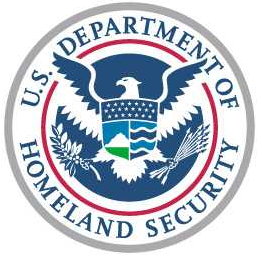![]()
HOMELAND INSECURITY
Guess how DHS defines who is a terrorist now?
2nd 'domestic extremism' report includes 'alternative media,' 'tax resisters'
in lexicon
Posted: May 02, 2009
8:35 pm Eastern
By Drew Zahn
© 2009 WorldNetDaily
 Two weeks before
the U.S. Department of Homeland Security penned its
controversial report warning against "right-wing extremists" in the
United States, it generated a memo defining dozens of additional groups –
animal rights activists, black separatists, tax protesters, even worshippers
of the Norse god Odin – as potential "threats."
Two weeks before
the U.S. Department of Homeland Security penned its
controversial report warning against "right-wing extremists" in the
United States, it generated a memo defining dozens of additional groups –
animal rights activists, black separatists, tax protesters, even worshippers
of the Norse god Odin – as potential "threats."
Though the "Domestic Extremism Lexicon" was reportedly rescinded almost immediately, Benjamin Sarlin of The Daily Beast recently obtained and published online a copy of the unclassified memo, dated March 26, 2009.
While many of the groups listed in the lexicon – such as Aryan prison gangs and neo-Nazis – may indeed be widely considered extremists, others will likely take offense at being described as a potential "threat."
For example, the memo defines the "tax resistance movement" – also referred to in the report as the tax protest movement or the tax freedom movement – as "groups or individuals who vehemently believe taxes violate their constitutional rights. Among their beliefs are that wages are not income, that paying income taxes is voluntary, and that the 16th Amendment to the U.S. Constitution, which allowed Congress to levy taxes on income, was not properly ratified."
The report, however, continues in its assessment of tax protesters, asserting that members "have been known to advocate or engage in criminal activity and plot acts of violence and terrorism in an attempt to advance their extremist goals."
Similarly, the lexicon concludes its definition of "black separatists" by asserting, "Such groups or individuals also may embrace radical religious beliefs. Members have been known to advocate or engage in criminal activity and plot acts of violence directed toward local law enforcement in an attempt to advance their extremist goals."
In his blog piece titled "Who You Calling an Extremist?" Sarlin writes, "Partisans leapt to decry the first DHS memo as part of a Democratic conspiracy to marginalize right wingers. But it became clear that DHS's broad descriptions of extremists were symptomatic of an ongoing agency problem that crossed ideological lines."
The lexicon states its purpose is to provide "definitions for key terms and phrases that often appear in DHS analysis that addresses the nature and scope of the threat that domestic, non-Islamic extremism poses to the United States."
Apparently, the DHS analyzes the "threat" level of Internet news websites like WorldNetDaily, for the lexicon defines "alternative media" as "a term used to describe various information sources that provide a forum for interpretations of events and issues that differ radically from those presented in mass media products and outlets."
The term "black power," widely used in a variety of contexts, also merits a definition in the lexicon: "A term used by black separatists to describe their pride in and the perceived superiority of the black race."
The DHS memo also includes precursors to the ill-fated "Right-wing Extremism: Current Economic and Political Climate Fueling Resurgence in Radicalization and Recruitment" report, which prompted outrage from legislators and a campaign calling for the resignation of DHS Secretary Janet Napolitano.
For example, the lexicon contains virtually the same broad-stroke language the right-wing extremism report used.
"Rightwing extremism," the lexicon defines as those "who can be broadly divided into those who are primarily hate-oriented, and those who are mainly antigovernment and reject federal authority in favor of state or local authority. This term also may refer to rightwing extremist movements that are dedicated to a single issue, such as opposition to abortion or immigration."
The lexicon further points to those who oppose driver's licenses for illegal immigrants.
"Anti-immigration extremism," the lexicon defines as "a movement of groups or individuals who are vehemently opposed to illegal immigration, particularly along the U.S. southwest border with Mexico, and who have been known to advocate or engage in criminal activity and plot acts of violence and terrorism to advance their extremist goals. They are highly critical of the U.S. Government's response to illegal immigration and oppose government programs that are designed to extend 'rights' to illegal aliens, such as issuing driver's licenses or national identification cards and providing in-state tuition, medical benefits, or public education."
Unlike the right-wing extremism report, however, the lexicon includes definitions of extremism across a broad spectrum of issues: anarchy, animal rights extremism, black nationalism, Cuban independence, environmentalism, Jewish extremism, Mexican separatism, right-wing militias, white supremacists, the anti-war movement and more.
Among the more curious groups the DHS appears to be monitoring is the "racial Nordic mysticism" group, defined as "an ideology adopted by many white supremacist prison gangs who embrace a Norse mythological religion, such as Odinism or Asatru."
Among the more comical definitions is the description given of what "racist skinheads" wear, enabling law officers, it appears, to identify skinheads by their preferred brand of footwear:
"Dress may include a shaved head or very short hair," the report states, "jeans, thin suspenders, combat boots or Doc Martens, a bomber jacket, and tattoos of Nazi-like emblems."
Sarlin, who first publicized the memo, reports that a spokesperson for DHS told him the memo was recalled "within minutes" of being issued but declined to offer any details on the reasons for its withdrawal.